第29章 CHAPTER XIV(2)
I remember staying with Theobald some six or seven months after he was married, and while the old church was still standing. I went to church, and felt as Naaman must have felt on certain occasions when he had to accompany his master on his return after having been cured of his leprosy. I have carried away a more vivid recollection of this and of the people, than of Theobald's sermon. Even now I can see the men in blue smock frocks reaching to their heels, and more than one old woman in a scarlet cloak; the row of stolid, dull, vacant plough-boys, ungainly in build, uncomely in face, lifeless, apathetic, a race a good deal more like the pre-revolution French peasant as described by Carlyle than is pleasant to reflect upon--a race now supplanted by a smarter, comelier and more hopeful generation, which has discovered that it too has a right to as much happiness as it can get, and with clearer ideas about the best means of getting it.
They shamble in one after another, with steaming breath, for it is winter, and loud clattering of hob-nailed boots; they beat the snow from off them as they enter, and through the opened door I catch a momentary glimpse of a dreary leaden sky and snow-clad tombstones.
Somehow or other I find the strain which Handel has wedded to the words "There the ploughman near at hand," has got into my head and there is no getting it out again. How marvellously old Handel understood these people!
They bob to Theobald as they passed the reading desk ("The people hereabouts are truly respectful," whispered Christina to me, "they know their betters."), and take their seats in a long row against the wall. The choir clamber up into the gallery with their instruments--a violoncello, a clarinet and a trombone. I see them and soon I hear them, for there is a hymn before the service, a wild strain, a remnant, if I mistake not, of some pre-Reformation litany.
I have heard what I believe was its remote musical progenitor in the church of SS. Giovanni e Paolo at Venice not five years since; and again I have heard it far away in mid-Atlantic upon a grey sea-Sabbath in June, when neither winds nor waves are stirring, so that the emigrants gather on deck, and their plaintive psalm goes forth upon the silver haze of the sky, and on the wilderness of a sea that has sighed till it can sigh no longer. Or it may be heard at some Methodist Camp Meeting upon a Welsh hillside, but in the churches it is gone for ever. If I were a musician I would take it as the subject for the adagio in a Wesleyan symphony.
Gone now are the clarinet, the violoncello and the trombone, wild minstrelsy as of the doleful creatures in Ezekiel, discordant, but infinitely pathetic. Gone is that scarebabe stentor, that bellowing bull of Bashan the village blacksmith, gone is the melodious carpenter, gone the brawny shepherd with the red hair, who roared more lustily than all, until they came to the words, "Shepherds with your flocks abiding," when modesty covered him with confusion, and compelled him to be silent, as though his own health were being drunk. They were doomed and had a presentiment of evil, even when first I saw them, but they had still a little lease of choir life remaining, and they roared out [wick-ed hands have pierced and nailed him, pierced and nailed him to a tree.] but no description can give a proper idea of the effect. When I was last in Battersby church there was a harmonium played by a sweet- looking girl with a choir of school children around her, and they chanted the canticles to the most correct of chants, and they sang Hymns Ancient and Modern; the high pews were gone, nay, the very gallery in which the old choir had sung was removed as an accursed thing which might remind the people of the high places, and Theobald was old, and Christina was lying under the yew trees in the churchyard.
But in the evening later on I saw three very old men come chuckling out of a dissenting chapel, and surely enough they were my old friends the blacksmith, the carpenter and the shepherd. There was a look of content upon their faces which made me feel certain they had been singing; not doubtless with the old glory of the violoncello, the clarinet and the trombone, but still songs of Sion and no new fangled papistry.